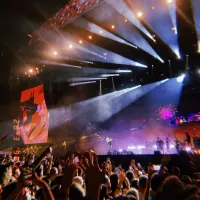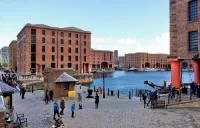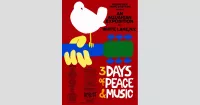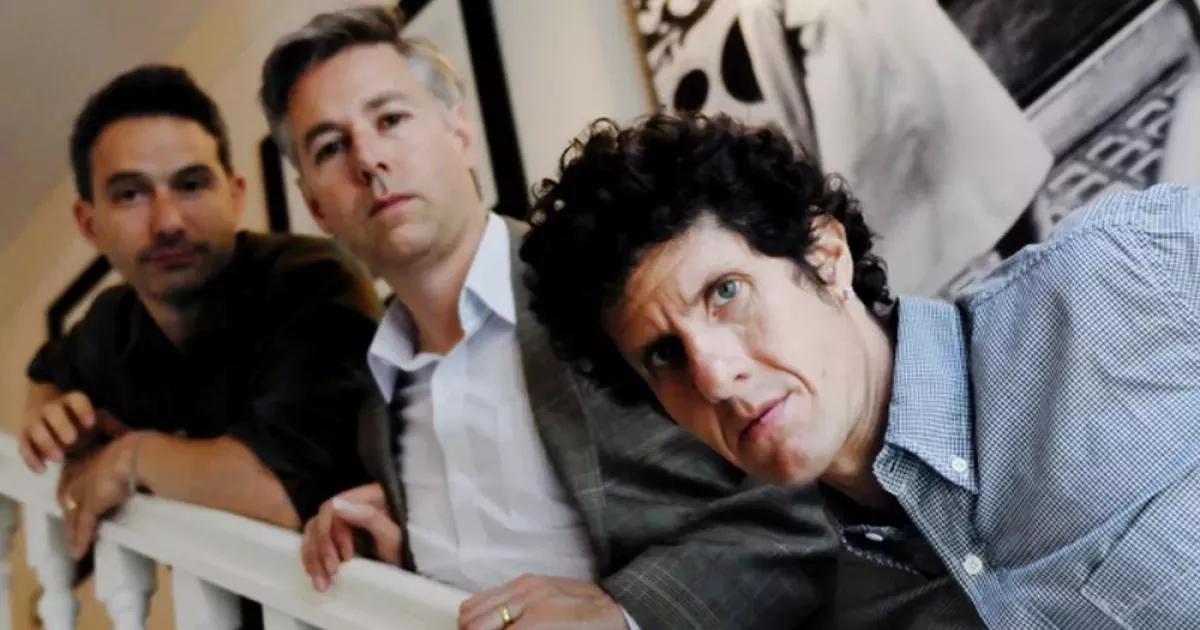The Beastie Boys, a renowned American hip hop/rap rock group from New York City, emerged in 1981. The trio, consisting of Adam "Ad-Rock" Horovitz, Adam "MCA" Yauch, and Michael "Mike D" Diamond, transitioned from their punk rock roots in the band The Young Aborigines. Originally featuring a different lineup, the band solidified as Beastie Boys with Yauch replacing Jeremy Shatan on bass and Horovitz joining after the departure of John Berry.
1974: Release of "Time for Livin'" (Original Song)
In 1974, Sly and the Family Stone released the song "Time for Livin'," which Beastie Boys later covered for their 1992 album "Check Your Head".
1979: Formation of The Young Aborigines
The origin story of Beastie Boys can be traced back to 1979 with the formation of the experimental hardcore punk band, The Young Aborigines. This band featured future Beastie Boys members Michael Diamond on drums and Kate Schellenbach, who would later join on percussion.
July 1981: Transformation into Beastie Boys
July 1981 marked a pivotal moment as the remaining members of The Young Aborigines, Michael Diamond, John Berry, and Kate Schellenbach, decided to form a new hardcore punk band with Adam Yauch. This marked the official transformation into Beastie Boys, setting the stage for their legendary career.
1981: Formation of Beastie Boys
In 1981, Beastie Boys emerged from the remnants of the experimental hardcore punk band The Young Aborigines after the departure of bassist Jeremy Shatan. Adam Yauch stepped in to fill the bassist role, marking the beginning of Beastie Boys.
November 13, 1982: First On-Screen Appearance
On November 13, 1982, Beastie Boys had their first on-screen appearance in Philip Pucci's short concert film, "Beastie." This film, shot at Bard College, captured an early performance of the band and marked their entry into the world of visual media.
November 1982: Recording of "Polly Wog Stew"
In November 1982, Beastie Boys captured their early hardcore punk sound with the recording of their 7-inch EP "Polly Wog Stew" at 171A studios. This recording offers a glimpse into their musical roots and the burgeoning New York hardcore scene.
1983: Release of "Cooky Puss" and Transition to Hip Hop
Beastie Boys ventured into the world of hip hop in 1983 with their comedy single "Cooky Puss". This release marked a turning point for the band, leading to their full transition into the hip hop genre. Kate Schellenbach's departure coincided with this shift.
1983: Incorporation of Rap and "Cooky Puss" Success
Beastie Boys' experimentation with rap began to take shape in 1983, incorporating it into their sets and hiring DJ Rick Rubin for their live shows. The release of their EP "Cooky Puss," featuring their first hip hop track of the same name, became a hit in New York underground clubs. This success further fueled their exploration of rap and marked a turning point in their sound.
1984: Firing of Kate Schellenbach and Transition to Hip Hop
In 1984, Beastie Boys made the significant decision to fire Kate Schellenbach, with Diamond taking over on drums. This decision, attributed to a desire to cultivate a "tough-rapper-guy identity," coincided with their full transition into the world of hip hop.
1984: Release of "Rock Hard"
In 1984, Beastie Boys released the 12-inch single "Rock Hard," their second record produced by Rick Rubin under the Def Jam Recordings label. This release marked an early collaboration with Rubin, who would become instrumental in their success.
1985: Touring with Madonna
In 1985, Beastie Boys gained significant exposure by joining pop icon Madonna on her North American The Virgin Tour. This tour marked a significant step in their career, introducing them to a wider audience.
1985: Live Aid Concert
The Tibetan Freedom Concert, organized by Adam Yauch, was noted as the largest rock benefit concert since Live Aid in 1985.
July 22, 1986: Opening for Public Image Ltd. and Supporting Madonna
On July 22, 1986, Beastie Boys shared the stage with music legend John Lydon's post-Sex Pistols band, Public Image Ltd., as their opening act. This high-profile gig provided valuable exposure and contributed to their growing reputation in the music industry. They also joined Madonna on her North American The Virgin Tour.
November 15, 1986: Release of "Licensed to Ill"
On November 15, 1986, Beastie Boys unleashed their groundbreaking debut album, "Licensed to Ill," upon the world. This album, a fusion of rap and rock, achieved remarkable success, topping the Billboard 200 chart and establishing them as a major force in music.
1986: Release of "Licensed to Ill"
Beastie Boys celebrated a major career milestone in 1986 with the release of their debut album, "Licensed to Ill". This groundbreaking album became the first rap album to reach the top spot on the Billboard 200 chart, solidifying Beastie Boys' place in music history.
1986: Start of Platinum-Selling Streak
Beastie Boys' commercial success began to soar in 1986, marking the beginning of a remarkable run of seven platinum-selling albums, solidifying their position as one of the most successful rap groups of all time.
May 30, 1987: Licensed to Ill Tour Incident at Royal Court Theatre
On May 30, 1987, a Beastie Boys concert at the Royal Court Theatre in Liverpool, England, descended into chaos. The performance, part of the band's 'Licensed to Ill' tour, was marred by a riot that broke out shortly after they began playing. The incident led to the arrest of Adam Horovitz by Merseyside Police on charges of assault causing grievous bodily harm.
1987: Volkswagen Emblem Trend
In 1987, Mike D of Beastie Boys sparked a trend by wearing a Volkswagen emblem as a necklace, leading to numerous thefts of the emblem worldwide. A controversial concert in Columbus, Georgia that year led to the passage of a lewdness ordinance.
1988: Beastie Boys in "Tougher Than Leather" and Departure from Def Jam
In 1988, Beastie Boys appeared in the Def Jam Recordings film "Tougher Than Leather," directed by Rick Rubin. Following payment disputes with Def Jam, the band left the label and signed with Capitol Records.
July 25, 1989: Release of "Paul's Boutique"
On July 25, 1989, Beastie Boys released their second album, "Paul's Boutique." Produced by the Dust Brothers, the album is known for its innovative use of samples and is considered a pioneering work of experimental hip hop.
1989: Release of "Paul's Boutique"
In 1989, Beastie Boys released their second album, "Paul's Boutique." This album, notable for its extensive use of samples, initially faced commercial disappointment. However, it would later garner critical acclaim, becoming a testament to the band's innovative approach to music.
1991: Billboard's Recognition of Beastie Boys' Success
Billboard, the music industry's leading publication, recognized Beastie Boys' remarkable achievements since it began tracking sales in 1991. Their sales figures positioned them as the biggest-selling rap group during this period, underscoring their dominance within the genre.
1992: Release of "Check Your Head" and Musical Experimentation
Beastie Boys released "Check Your Head" in 1992, an album marked by their embrace of live instrumentation. Inspired by the band Urban Dance Squad, the members took on roles playing drums, bass, and guitar. This period saw them incorporating elements of funk and jazz, foreshadowing the nu metal genre.
1992: Release of "Check Your Head"
Beastie Boys returned to mainstream success in 1992 with the release of their third album, "Check Your Head." This album marked a return to their punk rock roots while incorporating elements of hip hop, showcasing their musical versatility.
1992: Copyright Lawsuit Over "Pass the Mic"
In 1992, Beastie Boys faced a lawsuit from James Newton, who alleged that the band's song "Pass the Mic" infringed on the copyright of his composition "Choir." The court ruled in favor of Beastie Boys, finding that the sampled portion of "Choir" lacked sufficient originality to be copyrightable.
1993: Launch of Grand Royal Records and "It's the New Style"
Beastie Boys launched their label, Grand Royal Records, in 1993, signing artists such as Luscious Jackson. That same year, they contributed the track "It's the New Style" to the Red Hot Organization's AIDS benefit album, "No Alternative."
1993: Launch of "Grand Royal Magazine"
Beastie Boys launched their magazine, "Grand Royal Magazine," in 1993.
1994: Popularizing the Term "Mullet"
Beastie Boys are credited with popularizing the term "mullet" through their 1994 song "Mullet Head."
1994: Release of "Ill Communication"
Beastie Boys continued their streak of success with the release of "Ill Communication" in 1994. This album, building upon the success of "Check Your Head," further solidified their place as a major force in both the hip hop and alternative rock scenes.
1994: Release of "Ill Communication" and "Sabotage"
Beastie Boys released "Ill Communication" in 1994, featuring the hit single "Sabotage" with its iconic Spike Jonze-directed music video. The album marked their return to the top of the charts.
1994: Tibetan Freedom Concert Organization
In 1994, Adam Yauch and activist Erin Potts organized the Tibetan Freedom Concert to raise awareness about human rights abuses in Tibet. The concert became an annual international event featuring various high-profile acts.
1994: Beastie Boys Headline Lollapalooza and Support Milarepa Fund
In 1994, Beastie Boys headlined the Lollapalooza music festival and performed concerts to benefit the Milarepa Fund, which raises awareness for Tibetan human rights.
1995: Start of Work on "Hello Nasty"
Beastie Boys began working on their album "Hello Nasty" in 1995.
1995: Beastie Boys' Popularity and "Aglio e Olio"
Beastie Boys' popularity in 1995 was evident in their sold-out arena tour, which included dates at Madison Square Garden. They also released the punk-influenced album "Aglio e Olio" that year.
1995: First Published Use of "Mullet"
The Oxford English Dictionary cites a 1995 issue of "Grand Royal Magazine" as one of the earliest published uses of the term "mullet."
1996: Yauch Organizes Tibetan Freedom Concert
Adam Yauch organized the Tibetan Freedom Concert in 1996, a large-scale benefit concert in San Francisco that drew over 100,000 attendees.
1996: Release of "The In Sound from Way Out!"
Beastie Boys released "The In Sound from Way Out!" in 1996, a compilation album featuring instrumental tracks.
1996: Relocation of Recording for "Hello Nasty"
Recording for "Hello Nasty" continued in New York City after Adam Yauch relocated there in 1996.
1997: End of "Grand Royal Magazine"
"Grand Royal Magazine" ceased publication in 1997.
July 14, 1998: Release of "Hello Nasty"
On July 14, 1998, Beastie Boys released "Hello Nasty," an album that achieved both critical and commercial success, topping charts internationally.
1998: Beastie Boys Pioneer Digital Music Distribution with Live Downloads and MP3s
Beastie Boys embraced digital music in 1998, offering live concert downloads to fans and becoming early adopters of MP3 distribution on their website. This pioneering move garnered significant attention, including coverage in The Wall Street Journal.
1998: Release of "Hello Nasty"
In 1998, Beastie Boys released "Hello Nasty," an album that blended elements of electronica and instrumental hip hop with their signature style. This release demonstrated their continuous evolution and experimentation within the realm of music.
1998: Beastie Boys Win MTV Video Vanguard Award and Speak Out Against Stereotyping Muslims
In 1998, the Beastie Boys received the Michael Jackson Video Vanguard Award at the MTV Video Music Awards. Yauch used the platform to address the stereotyping of Muslims as terrorists, particularly in light of the recent US Embassy bombings in Kenya and Tanzania.
September 25, 1999: Beastie Boys Perform with Elvis Costello on Saturday Night Live
On September 25, 1999, Beastie Boys joined Elvis Costello for a performance of "Radio Radio" on the 25th anniversary episode of Saturday Night Live.
1999: Beastie Boys Win Two Grammy Awards
In 1999, Beastie Boys made history by winning Grammy Awards in both the rap and alternative categories for their album "Hello Nasty" and the single "Intergalactic."
1999: Beastie Boys Release Anthology Album 'The Sounds of Science'
In 1999, Beastie Boys released their two-CD anthology, "The Sounds of Science." The album, featuring the new single "Alive," achieved chart success, reaching the top 20 in multiple countries.
1999: Beastie Boys Win Best Hip Hop Video and Address Sexual Assaults at Woodstock 99
The Beastie Boys won Best Hip Hop Video for "Intergalactic" at the 1999 MTV Video Music Awards. Adam Horovitz used their acceptance speech to speak out against the sexual assaults that occurred at Woodstock 99, urging for improved concert security.
2000: Rhyme and Reason Tour Canceled Due to Mike D's Injury
Beastie Boys' planned co-headlining tour with Rage Against the Machine and Busta Rhymes in 2000, dubbed the "Rhyme and Reason Tour," was canceled after drummer Mike D suffered a severe shoulder injury in a bicycle accident.
2000: Mike D Releases Solo Album as Country Mike
Mike D, under the moniker Country Mike, recorded and shared "Country Mike's Greatest Hits" as a Christmas gift with friends and family in 2000.
September 11, 2001: September 11 Attacks
On September 11, 2001, the United States experienced a series of terrorist attacks that profoundly impacted the nation.
October 2001: Beastie Boys Organize and Headline 'New Yorkers Against Violence Concert'
Following the September 11th attacks, Beastie Boys took action, organizing and headlining the "New Yorkers Against Violence Concert" at the Hammerstein Ballroom in October 2001.
2001: Ad-Rock's Side Project Releases 'Simply Mortified'
Adam "Ad-Rock" Horovitz's side project, BS 2000, released the album "Simply Mortified" in 2001.
2001: Closure of Grand Royal Records
Beastie Boys operated Grand Royal Records until its closure in 2001.
2002: Beastie Boys Establish Oscilloscope Laboratories and Begin Work on New Album
Adam Yauch spearheaded the creation of Oscilloscope Laboratories, a new recording studio in downtown Manhattan, in 2002, where Beastie Boys commenced work on a new album.
2003: Beastie Boys Release Anti-Iraq War Song, Perform at Tibetan Freedom Concerts and Coachella
In 2003, Beastie Boys released "In a World Gone Mad," a protest song against the Iraq war, as a free download. The band also performed at the Tibetan Freedom Concerts in Tokyo and Taipei, marking their first Taiwan appearance, and headlined the Coachella Valley Music and Arts Festival.
2003: Newton v. Diamond Case
In 2003, Beastie Boys were involved in the landmark sampling case Newton v. Diamond. A federal judge ruled that the band was not liable for sampling James Newton's 'Choir' in their track 'Pass the Mic,' setting a significant precedent in music sampling law.
April 28, 2004: Beastie Boys' Single "Ch-Check It Out" Featured on 'The O.C.'
On April 28, 2004, Beastie Boys' single "Ch-Check It Out" was featured in "The Vegas," an episode of the popular television show 'The O.C.'.
June 15, 2004: Beastie Boys Release Self-Produced Album 'To the 5 Boroughs'
"To the 5 Boroughs," Beastie Boys' first self-produced album, was released on June 15, 2004. The album achieved significant commercial success, topping the Billboard albums chart and reaching high positions in other countries.
2004: Release of "To the 5 Boroughs"
Beastie Boys paid homage to their hometown with the release of "To the 5 Boroughs" in 2004. This album, infused with socially conscious lyrics, marked a return to their rap roots and reflected their growth as artists.
2004: End of Platinum-Selling Streak
By 2004, Beastie Boys had achieved an impressive streak of seven platinum-selling albums. This period marked a significant chapter in their career, showcasing their sustained popularity and influence on the music industry.
2006: Beastie Boys Begin Writing New Material
In mid-2006, Beastie Boys revealed they were in the process of writing material for their next album, which they planned to produce themselves.
April 26, 2007: Beastie Boys Announce Instrumental Album 'The Mix-Up' in NME Interview
In an interview with British music weekly NME published on April 26, 2007, Mike D revealed that their new album, titled "The Mix-Up," would be instrumental.
May 1, 2007: Beastie Boys Confirm Instrumental Nature of 'The Mix-Up'
The band officially confirmed to their mailing list on May 1, 2007, that their upcoming album, "The Mix-Up," would be entirely instrumental.
July 7, 2007: Beastie Boys Perform at Live Earth and Embark on Festival Tour
Beastie Boys played a set at the UK leg of Live Earth at Wembley Stadium on July 7, 2007. The band also announced a short tour focused on music festivals, including Sónar, Roskilde, Hurricane/Southside, Bestival, Electric Picnic, and Open'er Festival.
July 10, 2007: Erroneous Release Date for 'The Mix-Up' Reported
The Mic-To-Mic blog incorrectly reported July 10, 2007, as the release date for "The Mix-Up."
2007: Beastie Boys Partner with Reverb on Summer Tour
Beastie Boys collaborated with Reverb, a non-profit environmental organization, during their 2007 summer tour.
2007: Release of "The Mix-Up"
Beastie Boys surprised fans with the release of "The Mix-Up" in 2007, an instrumental album that showcased their musical prowess. This departure from their traditional vocal-heavy style highlighted their versatility and instrumental talents.
2007: Revelation of the "Beastie" Acronym Origin
During a 2007 interview with Charlie Rose, Adam Yauch shed light on the origin of the band's name. Yauch and Diamond revealed that the acronym "Beastie," though often associated with "Boys Entering Anarchistic States Towards Inner Excellence," was actually an afterthought. The name "Beastie Boys" came first, with the acronym developed later.
March 7, 2008: Beastie Boys Headline Langerado Music Festival
On March 7, 2008, Beastie Boys headlined the Langerado Music Festival in South Florida.
February 2009: Yauch Discusses New Album's 'Bizarre' Direction
Yauch revealed in February 2009 that Beastie Boys' upcoming album would feature a "bizarre" new sound, incorporating a blend of live instrumentation and sampling. He also mentioned the working title, "Tadlock's Glasses."
May 25, 2009: Beastie Boys Announce 'Hot Sauce Committee' Album Title and Release Date
On May 25, 2009, during an appearance on Late Night with Jimmy Fallon, Beastie Boys announced their new album, "Hot Sauce Committee," slated for a September 15 release.
2009: Beastie Boys Plan Unconventional Release for 'Hot Sauce Committee Pt. 2'
Beastie Boys revealed plans for an unconventional release of "Hot Sauce Committee Pt. 2," a collection of songs recorded during the "Pt. 1" sessions. The band considered various distribution methods, such as surprise MP3 drops or periodic seven-inch vinyl releases.
October 2010: Hot Sauce Committee Updates
In October 2010, Beastie Boys sent out emails to their online mailing list regarding the status of their albums. On October 18, they announced that Hot Sauce Committee Part 1 would be delayed indefinitely, but Hot Sauce Committee Part 2 would be released on time in the spring of 2011.
April 11, 2011: Make Some Noise Single Release
On April 11, 2011, Beastie Boys released the single 'Make Some Noise' for download, followed by a limited edition 7-inch vinyl for Record Store Day.
April 27, 2011: Hot Sauce Committee Part 2 Japan Release
On April 27, 2011, Beastie Boys released Hot Sauce Committee Part 2 in Japan. This marked the beginning of the album's official release dates worldwide.
May 3, 2011: Hot Sauce Committee Part 2 US Release
Hot Sauce Committee Part 2 was released in the United States on May 3, 2011, following its earlier release in Japan and Europe.
December 2011: Announcement of Rock and Roll Hall of Fame Induction
In December 2011, it was announced that Beastie Boys would be inducted into the Rock and Roll Hall of Fame in 2012, recognizing their significant impact on music.
2011: Hot Sauce Committee Part 2 Release
In 2011, Beastie Boys confirmed that Hot Sauce Committee Part 2 would include the same 16 tracks originally intended for Part 1. The album was set to release in spring 2011 after extensive sequencing efforts.
2011: Release of "Hot Sauce Committee Part Two"
In 2011, Beastie Boys released "Hot Sauce Committee Part Two," their eighth studio album. This album was initially intended to be released earlier but was delayed due to Adam Yauch's cancer diagnosis.
April 14, 2012: Rock and Roll Hall of Fame Induction
On April 14, 2012, Beastie Boys were inducted into the Rock and Roll Hall of Fame by Chuck D and LL Cool J. Adam Yauch was too ill to attend, resulting in a performance by various artists instead.
May 4, 2012: Adam Yauch's Death
On May 4, 2012, Adam Yauch, also known as MCA, died from cancer at the age of 47. His passing led to the likely disbandment of Beastie Boys.
2012: Induction into the Rock and Roll Hall of Fame and Disbandment
In 2012, Beastie Boys reached a pinnacle of recognition with their induction into the prestigious Rock and Roll Hall of Fame, solidifying their legacy as one of the most influential and innovative groups in music history. This momentous occasion coincided with the tragic passing of Adam "MCA" Yauch from cancer, leading to the band's disbandment and leaving a void in the music world.
June 2014: Lawsuit Against Monster Energy
In June 2014, Beastie Boys won a lawsuit against Monster Energy for using their music in a commercial without permission. They were awarded $1.7 million in damages and $668,000 for legal fees.
June 2014: Beastie Boys Confirm No Future Music
In June 2014, Mike D confirmed that Beastie Boys would not make new music under their band name following Adam Yauch's death, although he remained open to future collaborations with Ad-Rock.
May 19, 2016: John Berry's Death
On May 19, 2016, founding Beastie Boys guitarist John Berry passed away at the age of 52 due to frontotemporal dementia. Berry was credited with naming the band and played guitar on their first EP.
October 2018: Release of Beastie Boys Book
In October 2018, Mike D and Ad-Rock released a memoir titled 'Beastie Boys Book,' which recounted various events throughout the group's history.
2018: Ad-Rock's Regret over Schellenbach's Firing
Years later, in their 2018 memoir, Adam "Ad-Rock" Horovitz expressed regret over the decision to fire Kate Schellenbach in 1984. He attributed the decision to their misguided pursuit of a "tough-rapper-guy identity" and acknowledged the impact it had on Schellenbach.
October 2020: Beastie Boys Music Compilation Album
In October 2020, Beastie Boys released the compilation album 'Beastie Boys Music,' which complemented their memoir and documentary.
2020: Spin Magazine Ranking
In 2020, Spin magazine ranked Beastie Boys as the 12th most influential artist of the previous 35 years, highlighting their significant impact on music.
July 14, 2022: Beastie Boys Square Renaming Vote
On July 14, 2022, the New York City Council passed a vote to rename the intersection of Ludlow and Rivington streets in Manhattan's Lower East Side as 'Beastie Boys Square.' This was the result of a grassroots campaign that began in 2013.
September 9, 2023: Beastie Boys Square Renaming
On September 9, 2023, the intersection of Ludlow and Rivington streets was officially renamed 'Beastie Boys Square,' coinciding with the 50th anniversary of hip hop.
Mentioned in this timeline

Michael Joseph Jackson the King of Pop was a highly...

Lollapalooza is an annual four-day music festival held in Grant...

Liverpool is a port city and metropolitan borough located in...
Saturday Night Live SNL is a late-night live sketch comedy...
Apple TV is a digital media player and microconsole by...

The Woodstock Music and Art Fair held on Max Yasgur's...
Trending
4 minutes ago Omaha Braces for Winter Storm: Schools and Businesses Alter Schedules

4 minutes ago Prince Harry Uses Intermediary to Contact Prince William; Relations Remain Strained
5 minutes ago Mason Thames' New Comedy with Peter Dinklage Receives Positive Reviews; Dominates Netflix.

1 hour ago Clara Tauson Dominates Linette in Dubai, Secures WTA 1000 Quarterfinal Spot

1 hour ago Pegula Defeats Jovic, Advances to Dubai Quarterfinals; Set to Face Tauson
1 hour ago Toyota Supra and Lexus LC May Share Platform for Next Generation Models
Popular

Jesse Jackson is an American civil rights activist politician and...
Randall Adam Fine is an American politician a Republican who...

Pam Bondi is an American attorney lobbyist and politician currently...

Barack Obama the th U S President - was the...

Martin Luther King Jr was a pivotal leader in the...

Ken Paxton is an American politician and lawyer serving as...
